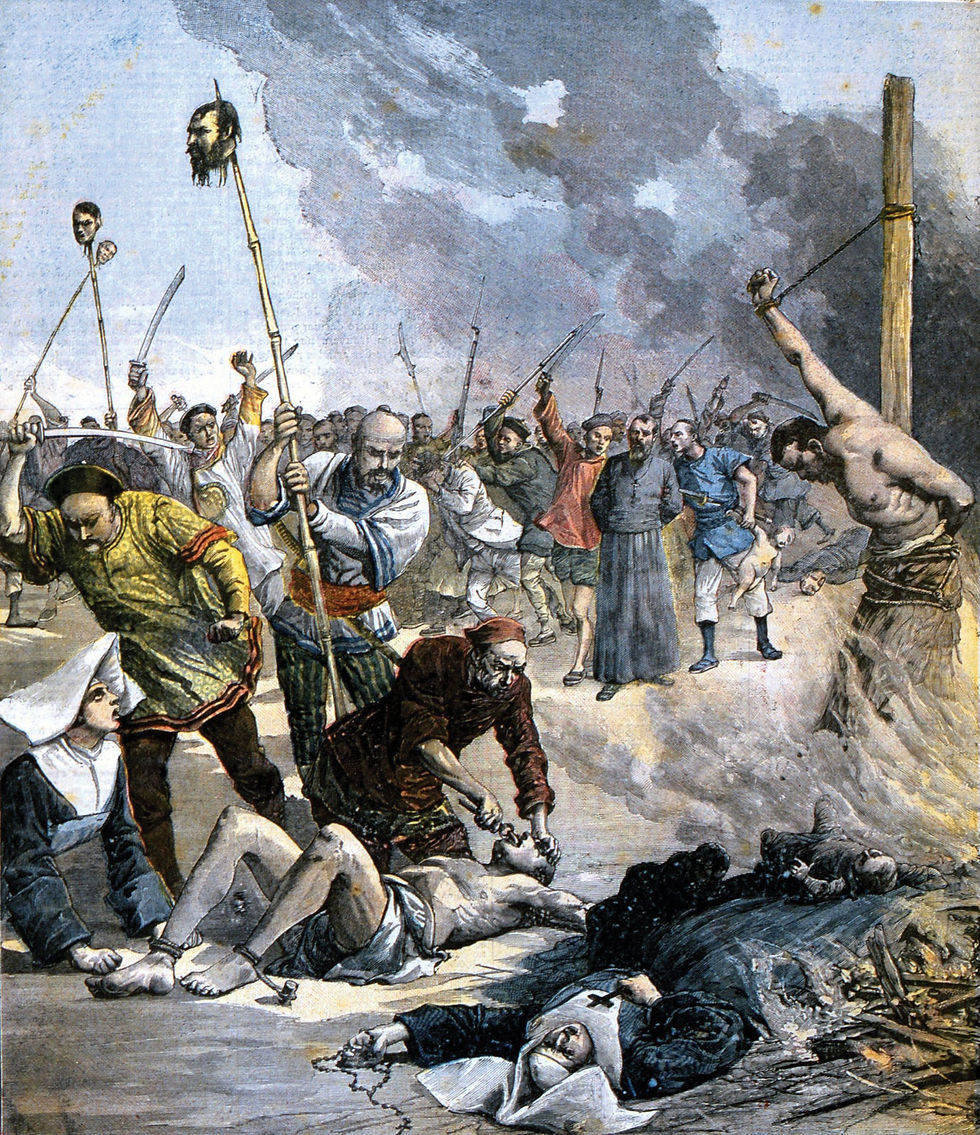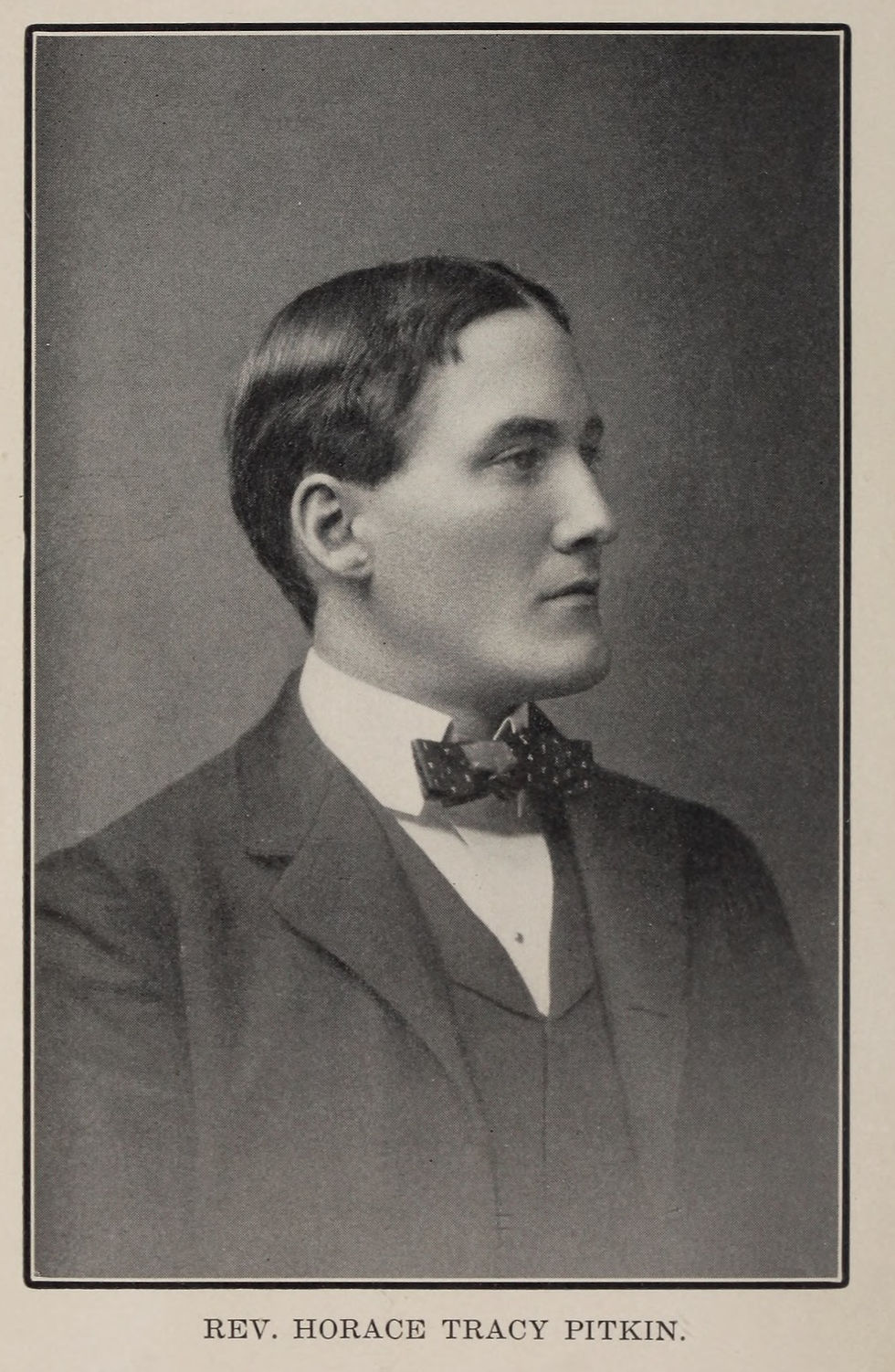July 1 The Boxer Uprising leads the first martyr from Yale
- Pearl of Great Price
- Jun 30, 2021
- 3 min read

American missionary Horace Tracy Pitkin was beheaded when a mob burst into his Mission compound as part of the Boxer Uprising. This was an armed anti-Christian, and anti-imperialist insurrection in China between 1899 and 1901, towards the end of the Qing dynasty.
During the latter part of the century, China’s borders had become more penetrable than ever before due to the disastrous Opium Wars of the 1840s and the inroads of the imperial foreign powers. In this climate, anti-foreign sentiment and resentments were boiling over. The rebellion was initiated by the Militia United in Righteousness known in English as the Boxers, because many of their members had practiced Chinese martial arts, also referred to in the Western world at the time as Chinese Boxing.
Pitkin had been a student at the prestigious Yale University. Founded by Puritans (see pod of Mar 12 and) it was then still a very religious school, and very prominent in the religious revival called the Great Awakening (Pod of Mar 22nd). Pitkin always had in the back of his mind to become a missionary or a minister and it was there that he quietly and resolutely committed himself to God’s work in foreign missions. He kindled a missionary interest amongst his fellow students forming the Yale Band which later became Yale Mission in China. H. W. Luce, was one of the men who followed Pitkin to China as a missionary. In a sign of the shifting aspirations of generations, his son, also called Henry Luce, created the first multimedia corporation and founded famous magazines such as Time and Sports Illustrated.

Yale became the first university in the United States to hire a professor of Chinese language and history and lobbied Congress to rescind the 1882 Chinese Exclusion Act, a law that limited Asian immigration to the United States. After graduation, Pitkin entered Union Theological Seminary in New York. For three years, he challenged Christian students with the call to foreign missionary service. After arousing missionary interest in many places, Pitkin and his newly-wed wife went to China as self-supporting missionaries. Soon after arriving they realised how unstable the situation in China was and before long he sent his wife and child back home to the United States. At the dawn of the new century, China seemed to be a powder keg ready to explode. The weakened Qing dynasty was desperately trying to regain power from the hungry “foreign devils” carving the land into sections. Villagers in North China had a building resentment against Christian missionaries and after a severe drought, violence and murder spread across Shandong and the North China Plain. They targeted foreign property, Christian missionaries and Chinese Christians. The Boxer fighters, convinced they were invulnerable to foreign weapons, converged on Beijing with the slogan "Support the Qing government and exterminate the foreigners." Foreigners and Chinese Christians sought refuge in the Legation Quarter. Diplomats, foreign civilians, as well as Chinese Christians in the Legation Quarter were besieged for 55 days by the Imperial Army of China and the Boxers.
The Boxers had also sealed off all exits from Paotingfu, the city where Pitkin was stationed. A Chinese messenger managed to escape the city with Pitkin’s last wish for his wife and son who at that time were in Ohio: “Tell the mother of little Horace to tell Horace that his father’s last wish was that when he is twenty-five years of age, he should come to China as a missionary.” On the first of July, through a pouring rain, a mob organized by the Boxers attacked Pitkin’s mission compound from the front and back. Pitkin attempted to defend the women and children in the mission, but the mob soon burst through the gate and captured Pitkin in the mission school yard. There, he was beheaded. Word would later reach Yale that Pitkin had been murdered while attempting to save two women missionaries. At the time, the news shocked the community and Pitkin’s dismayed friends were not satisfied with the monument erected to the University’s first “missionary martyr” in Woolsey Rotunda. They wanted to make sure that “Pitkin’s sacrifice was atoned for somehow by us Yale men.” They founded the Yale Foreign Missionary Society — which would later become the present-day Yale-China Association — and set to work establishing a school and hospital in Hunan, a province in Central China. Back in China an Eight-Nation Alliance, brought 20,000 armed troops to defeated the Imperial Army, and arrived in Beijing on 14 August, relieving the siege of the Legations. Uncontrolled plunder of the capital and the surrounding countryside ensued, along with summary execution of those suspected of being Boxers.
.jpg)


Comments